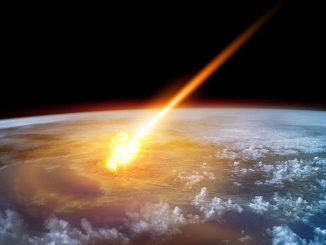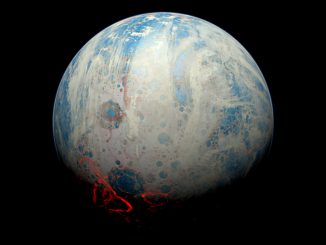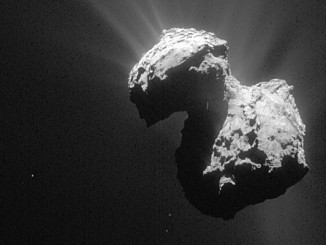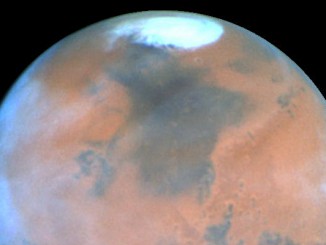
carbon dioxide


Comet impact preceded 56-million-year-old global warming event
A comet strike may have triggered the Paleocene-Eocene Thermal Maximum (PETM), a rapid warming of the Earth caused by an accumulation of atmospheric carbon dioxide 56 million years ago. Atmospheric carbon dioxide increased rapidly during the PETM, and an accompanying spike in global temperatures of about 5 to 8 °C lasted for about 150,000 years.

Primordial asteroid impacts a possible solution to “faint young Sun paradox”
In the first billion years of Earth’s history, the planet was bombarded by primordial asteroids, while a faint Sun provided much less heat. A Southwest Research Institute-led team posits that this tumultuous beginning may have ultimately fostered life on Earth, particularly in terms of sustaining liquid water.

Surprising discovery of molecular oxygen on comet 67P
ESA’s Rosetta spacecraft has made the first in situ detection of oxygen molecules outgassing from Comet 67P/Churyumov-Gerasimenko, a surprising observation that suggests they were incorporated into the comet during its formation. This may have implications for our understanding of the chemistry involved in the formation of the solar system some 4.6 billion years ago.

What happened to early Mars’ atmosphere?
Scientists may be closer to solving the mystery of how Mars changed from a world with surface water billions of years ago to the arid Red Planet of today. A new analysis of the largest known deposit of carbonate minerals on Mars suggests that the original Martian atmosphere may have already lost most of its carbon dioxide by the era of valley network formation.
